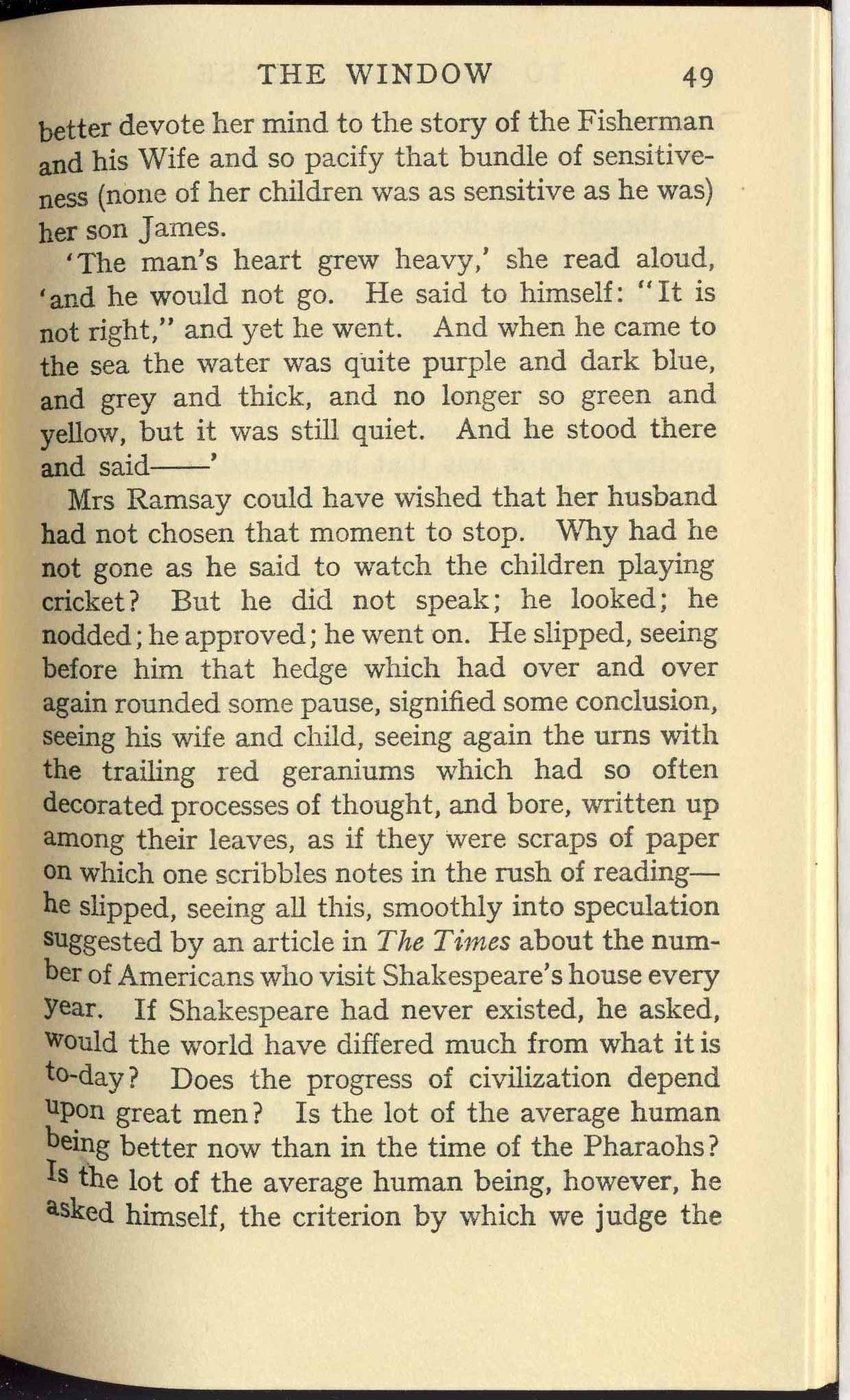
'The manŌĆÖs heart grew heavy,ŌĆÖ she read aloud,ŌĆśand he would not go. He said to himself: "It isnot right," and yet he went. And when he came tothe sea the water was quite purple and dark blue,and grey and thick, and no longer so green andyellow, but it was still quiet. And he stood thereand saidŌĆöŌĆö'
Mrs Ramsay could have wished that her husbandhad not chosen that moment to stop. Why had henot gone as he said to watch the children playingcricket? But he did not speak; he looked; henodded; he approved; he went on. He slipped, seeingbefore him that hedge which had over and overagain rounded some pause, signified some conclusion,seeing his wife and child, seeing again the urns withthe trailing red geraniums which had so oftendecorated processes of thought, and bore, written upamong their leaves, as if they were scraps of paperon which one scribbles notes in the rush of readingŌĆöhe slipped, seeing all this, smoothly into speculationsuggested by an article in The Times about the num-
ber of Americans who visit ShakespeareŌĆÖs house everyyear. If Shakespeare had never existed, he asked,would the world have differed much from what it isto-day? Does the progress of civilization dependupon great men? Is the lot of the average humanbeing better now than in the time of the Pharaohs?Is the lot of the average human being, however, heasked himself, the criterion by which we judge the








